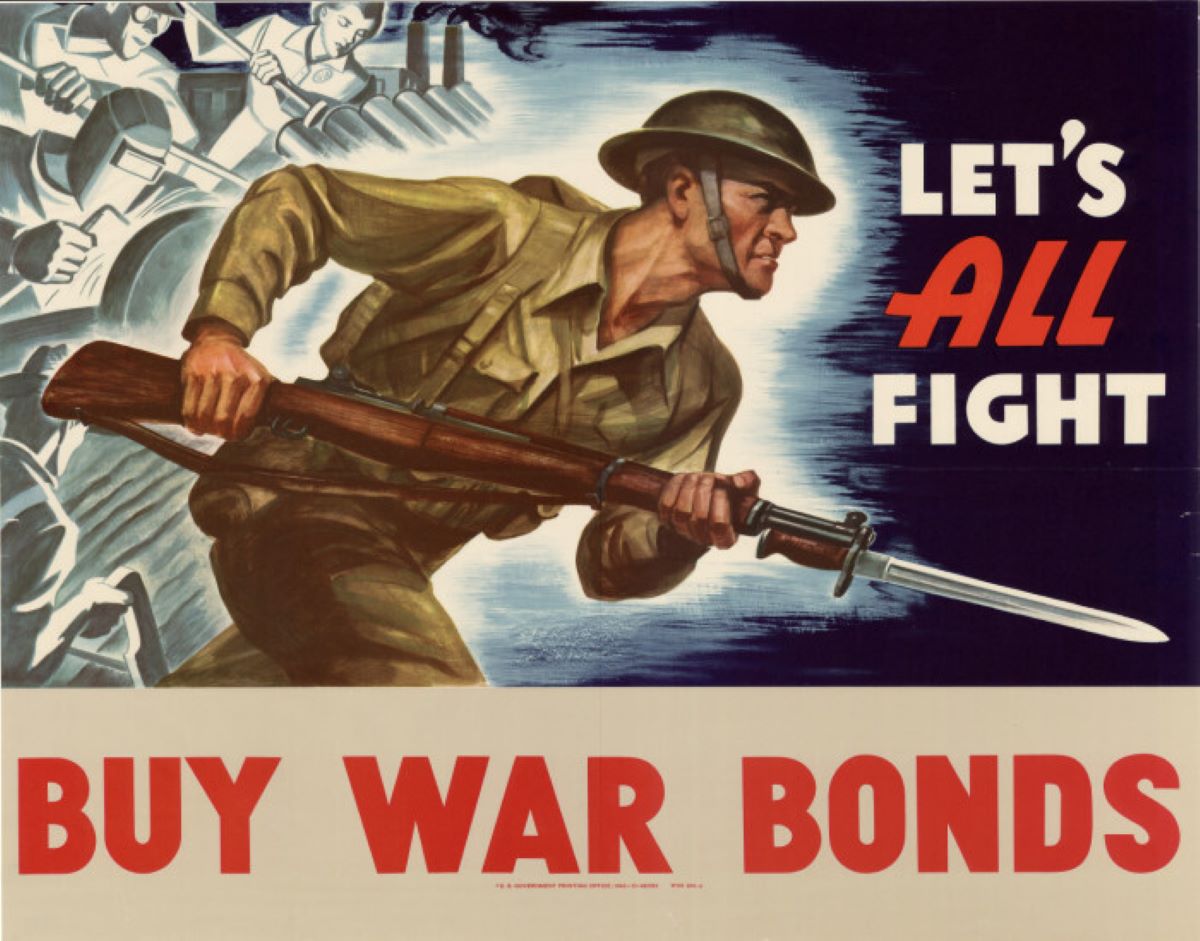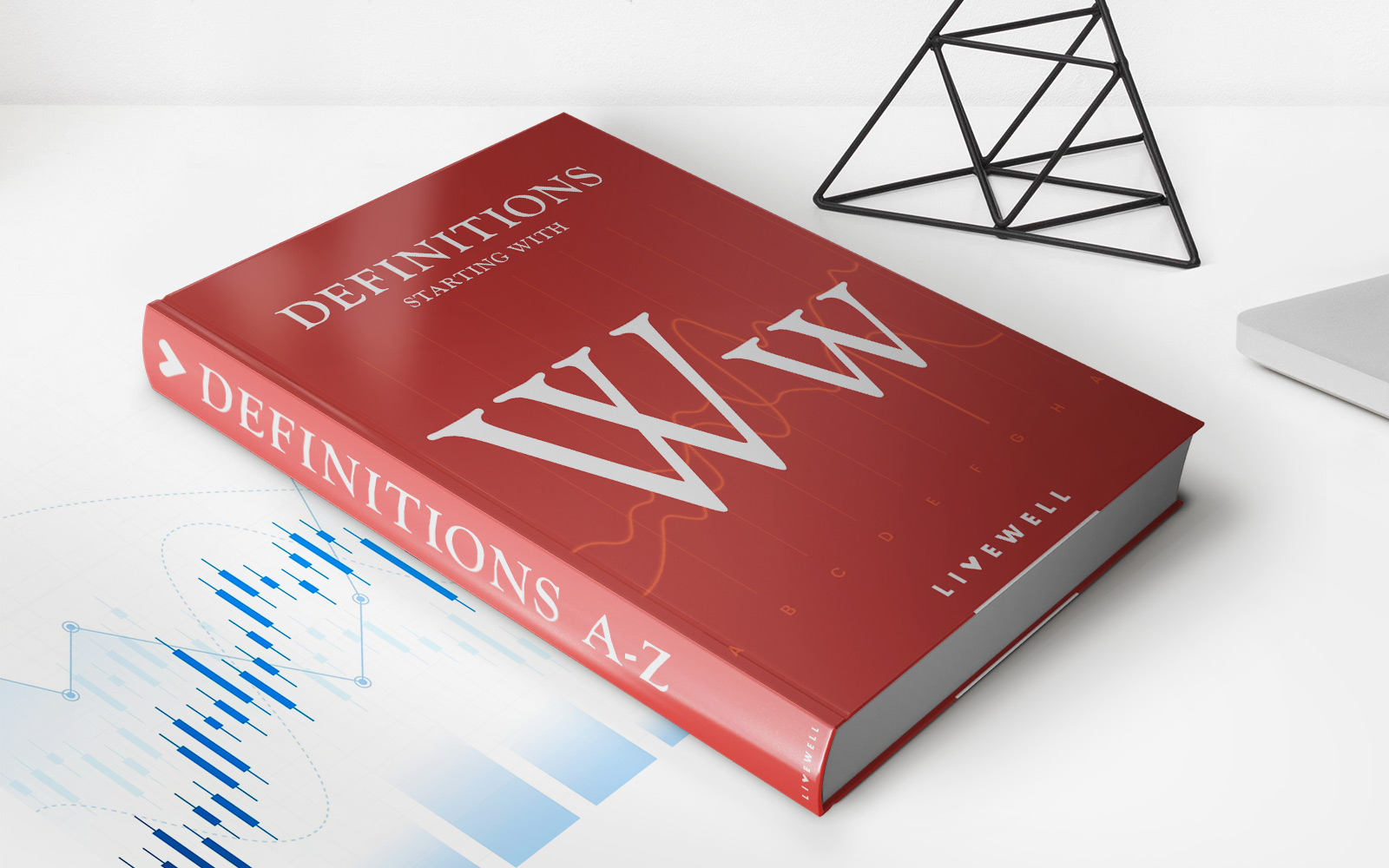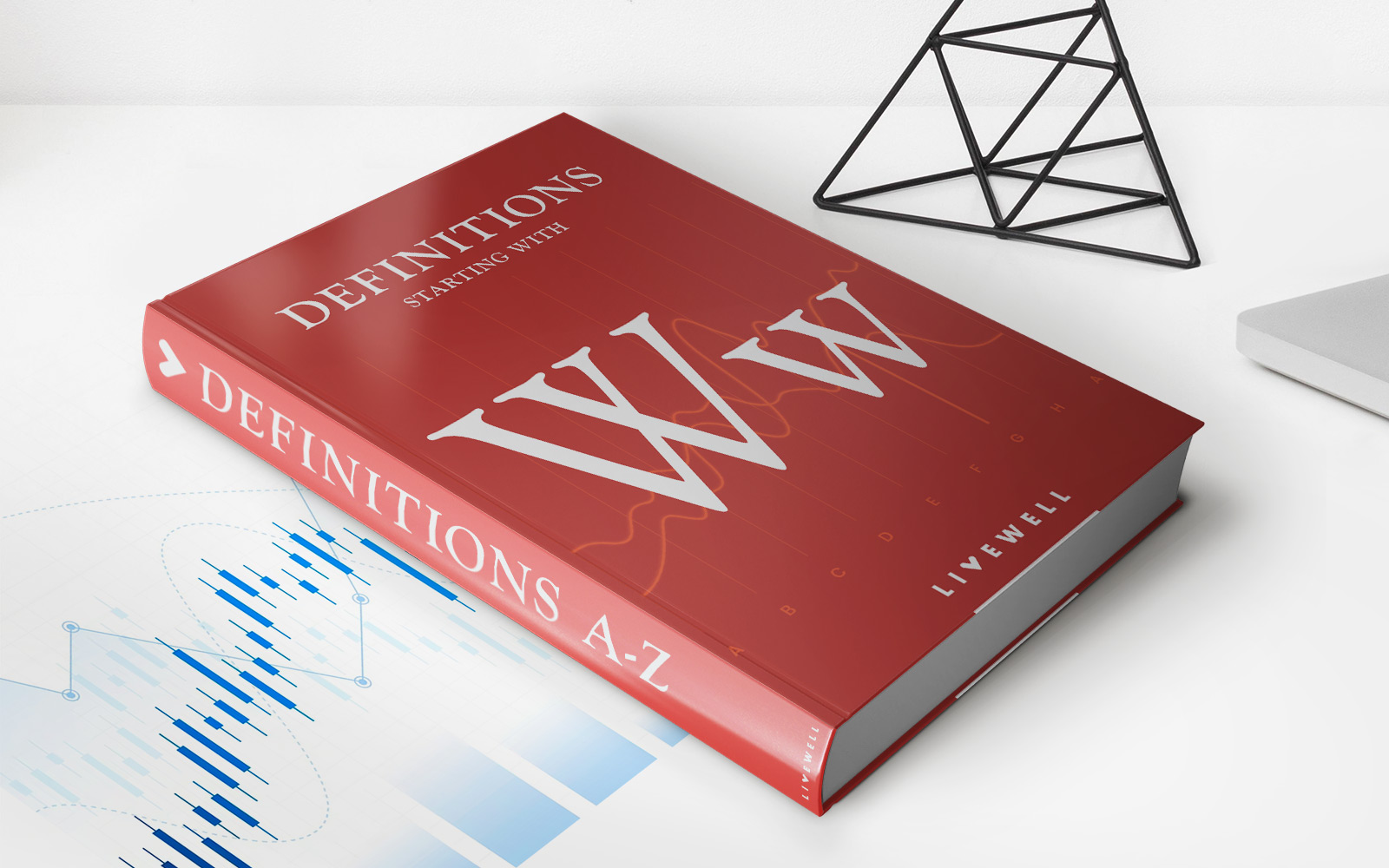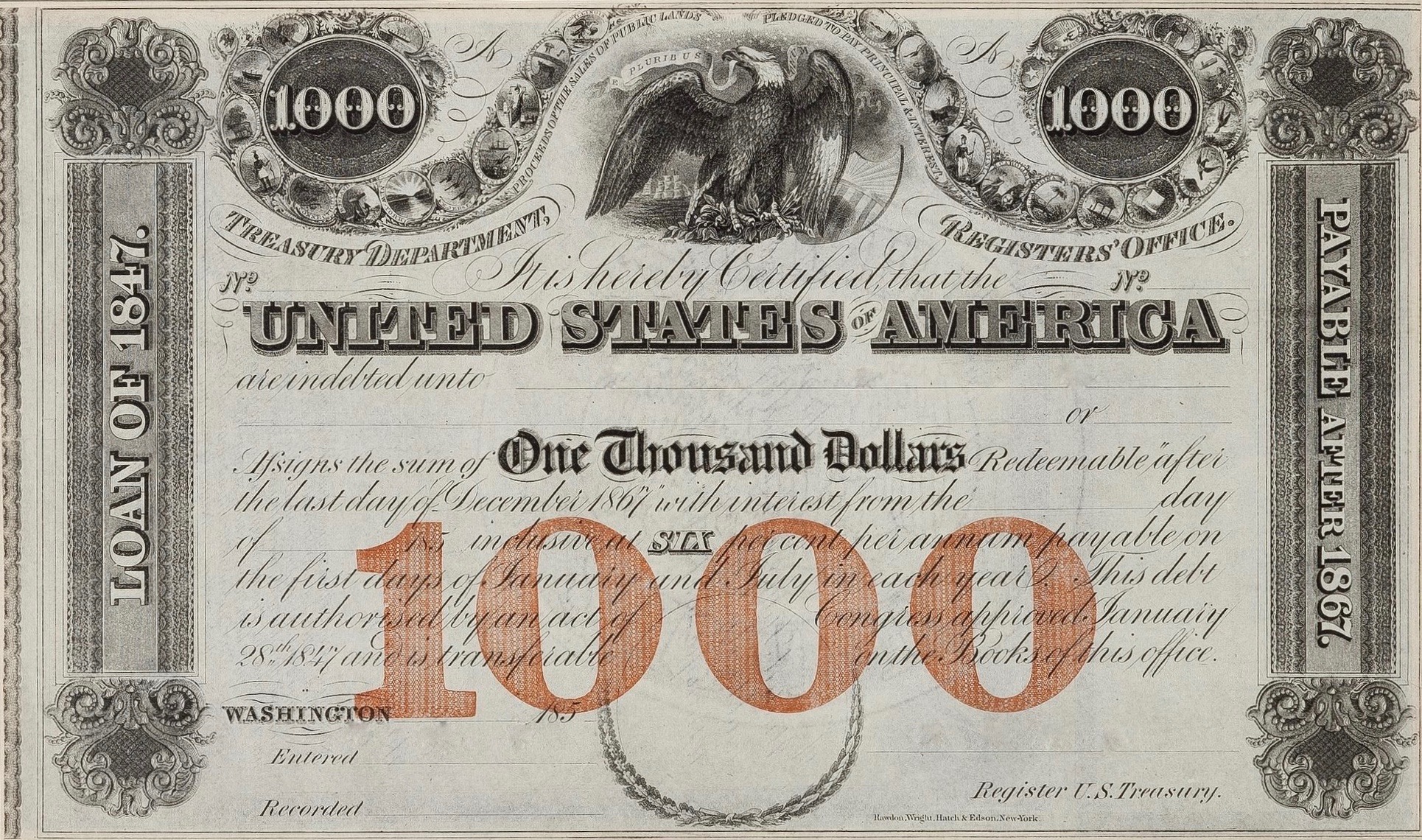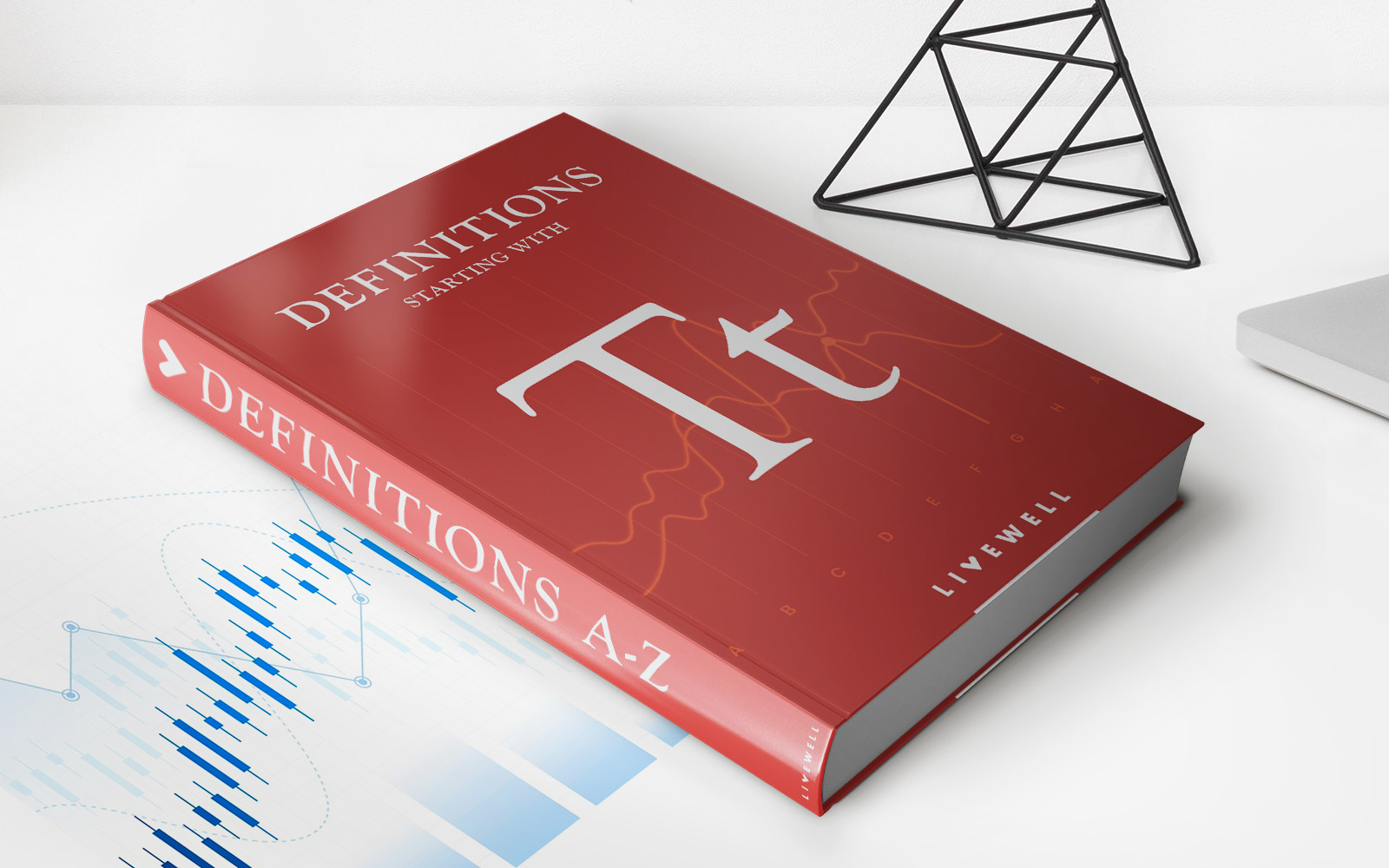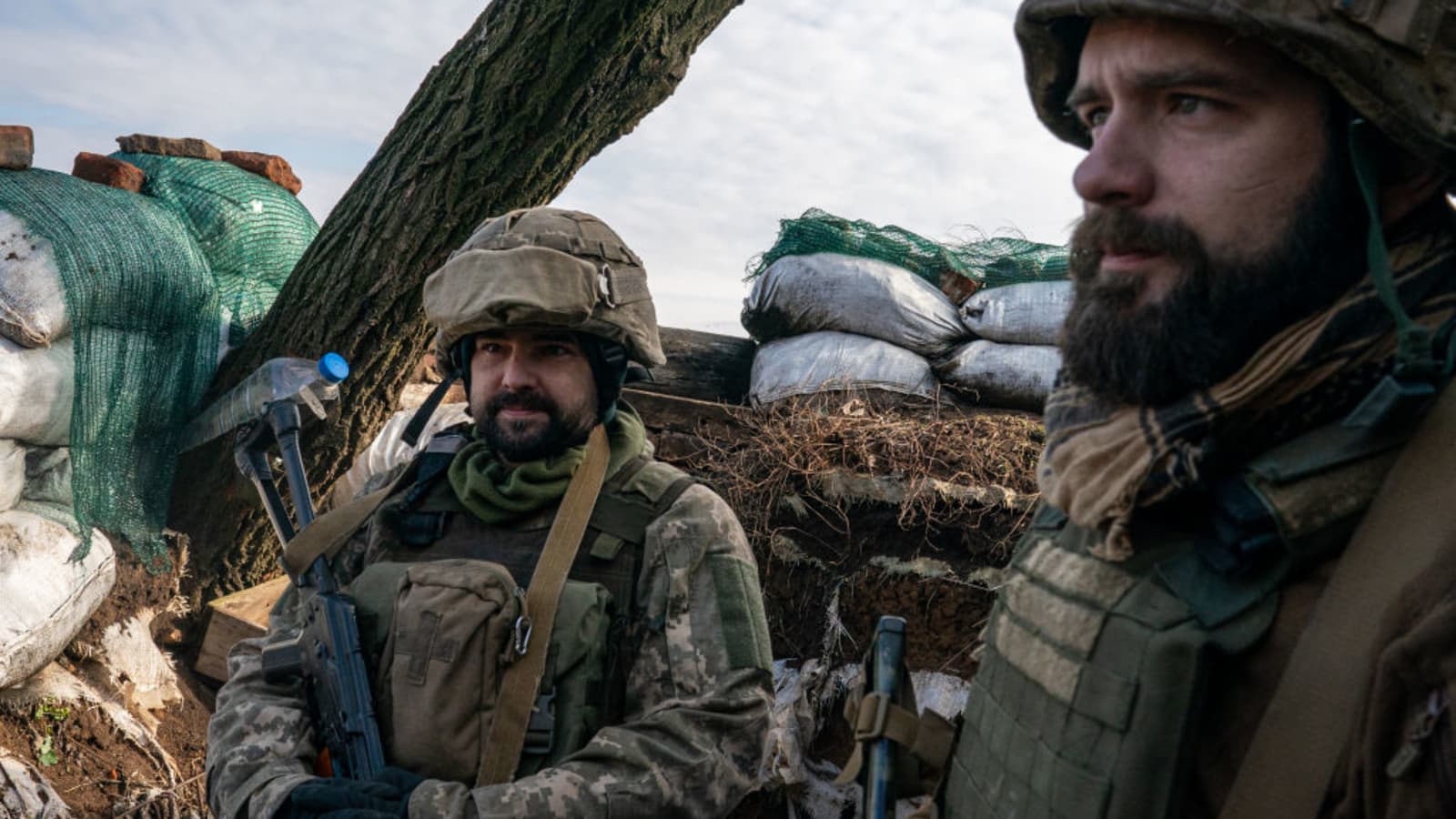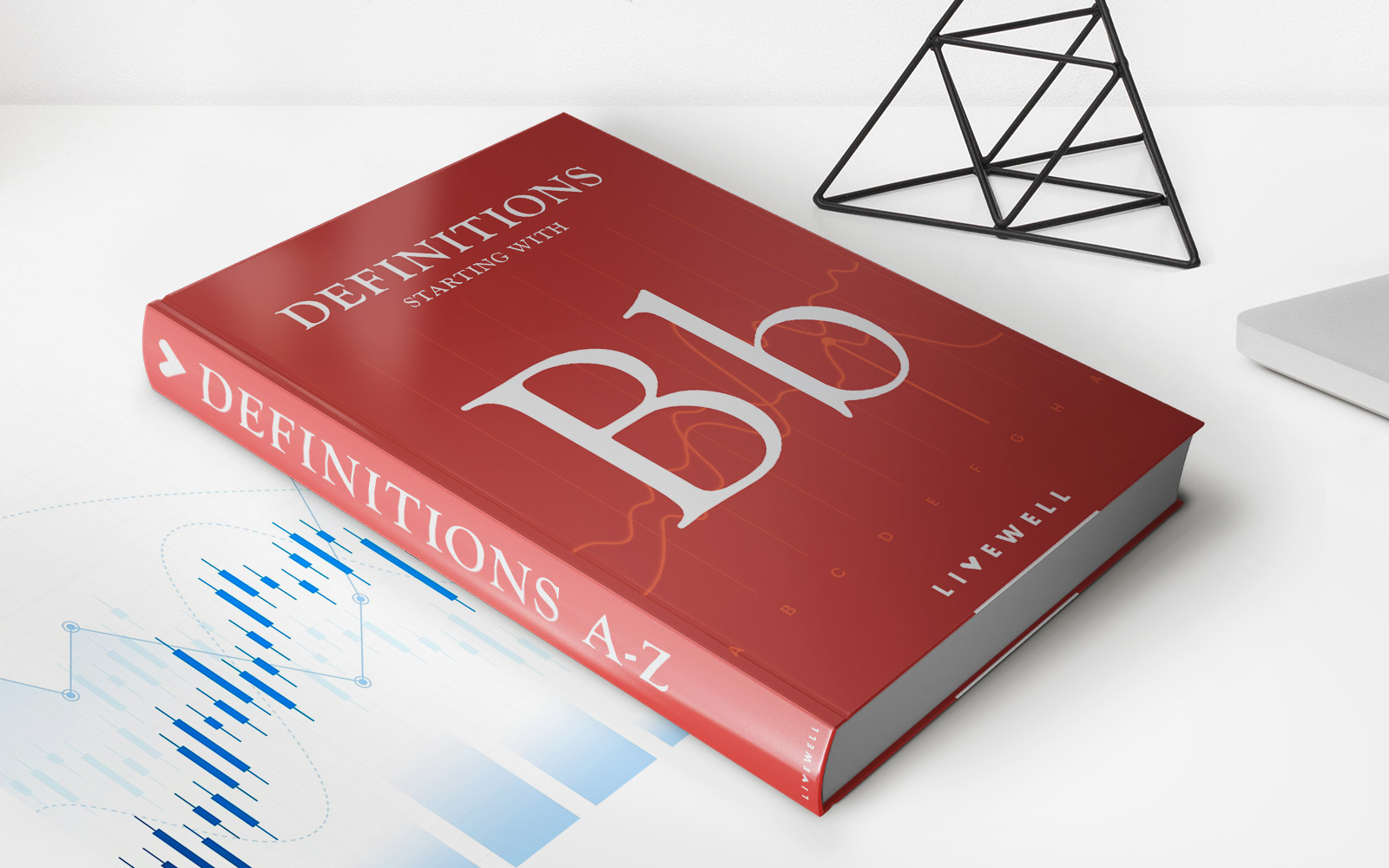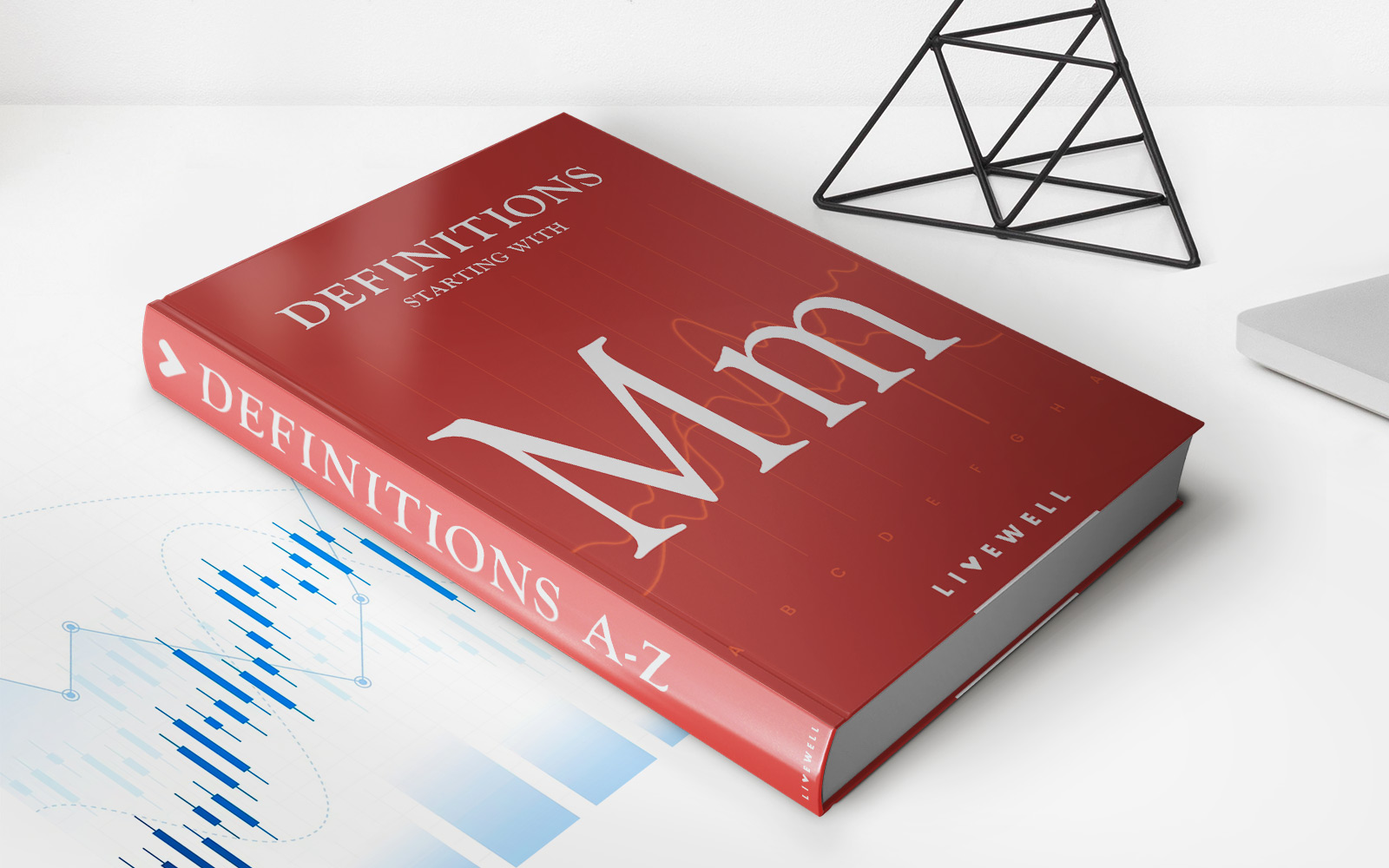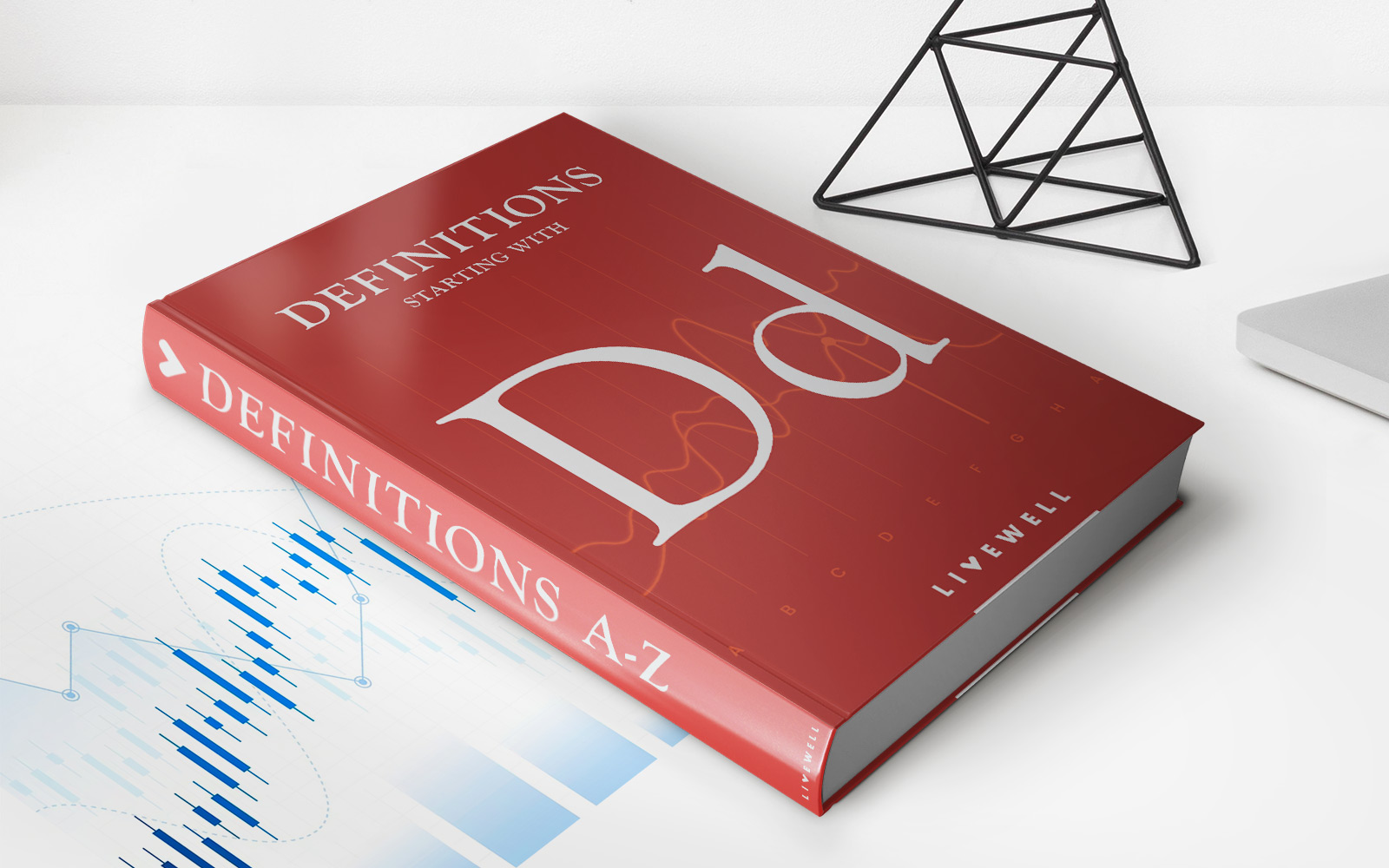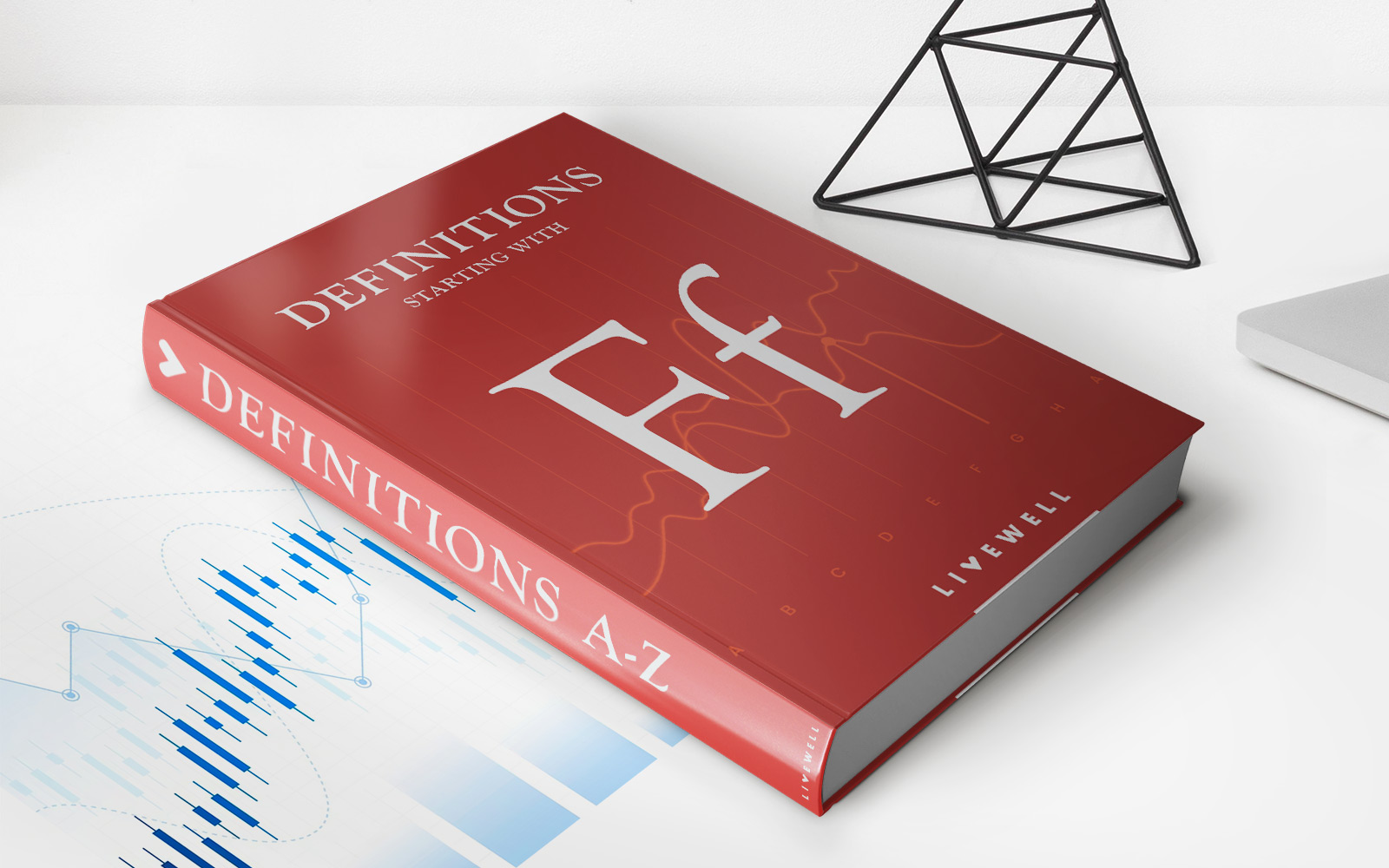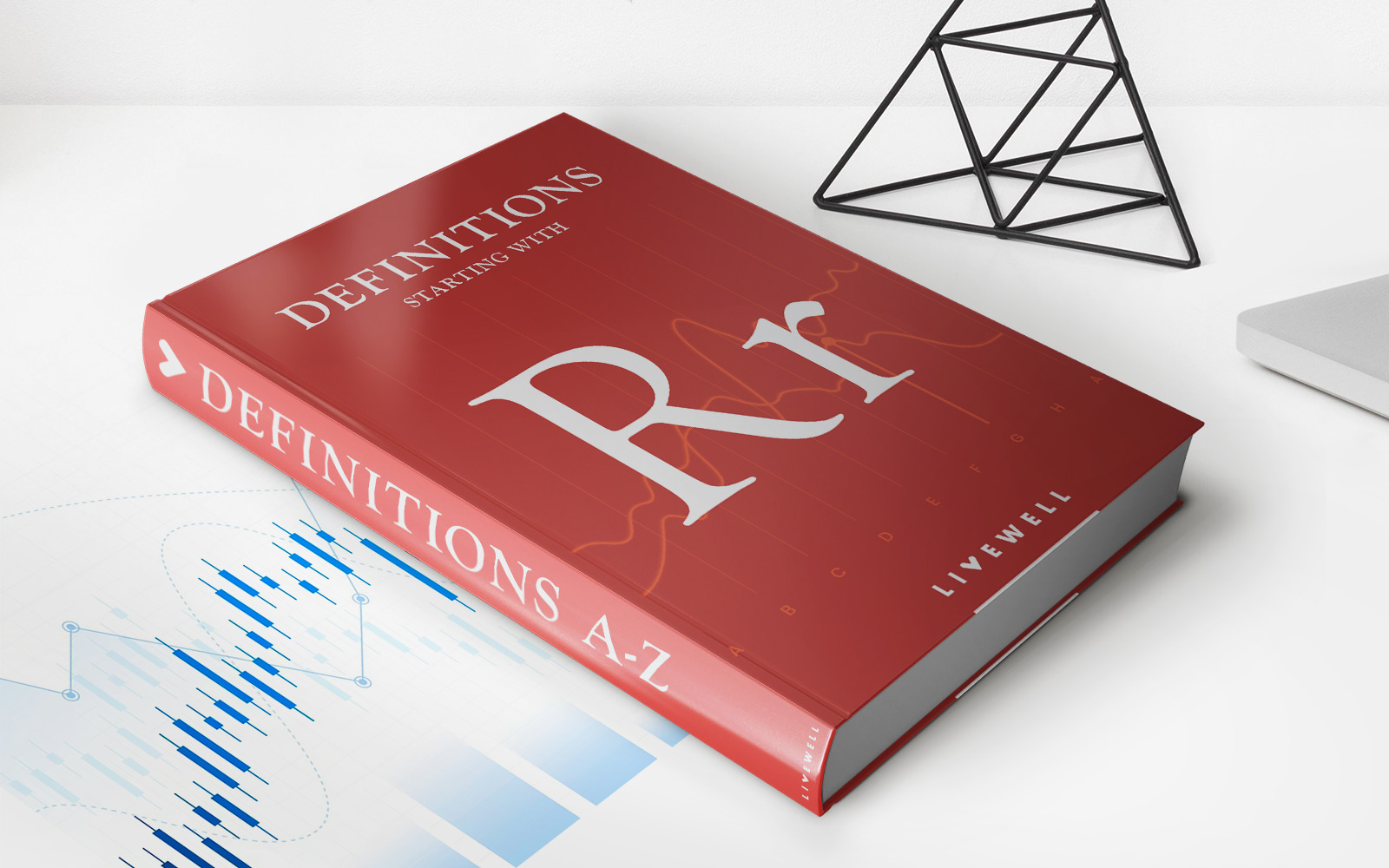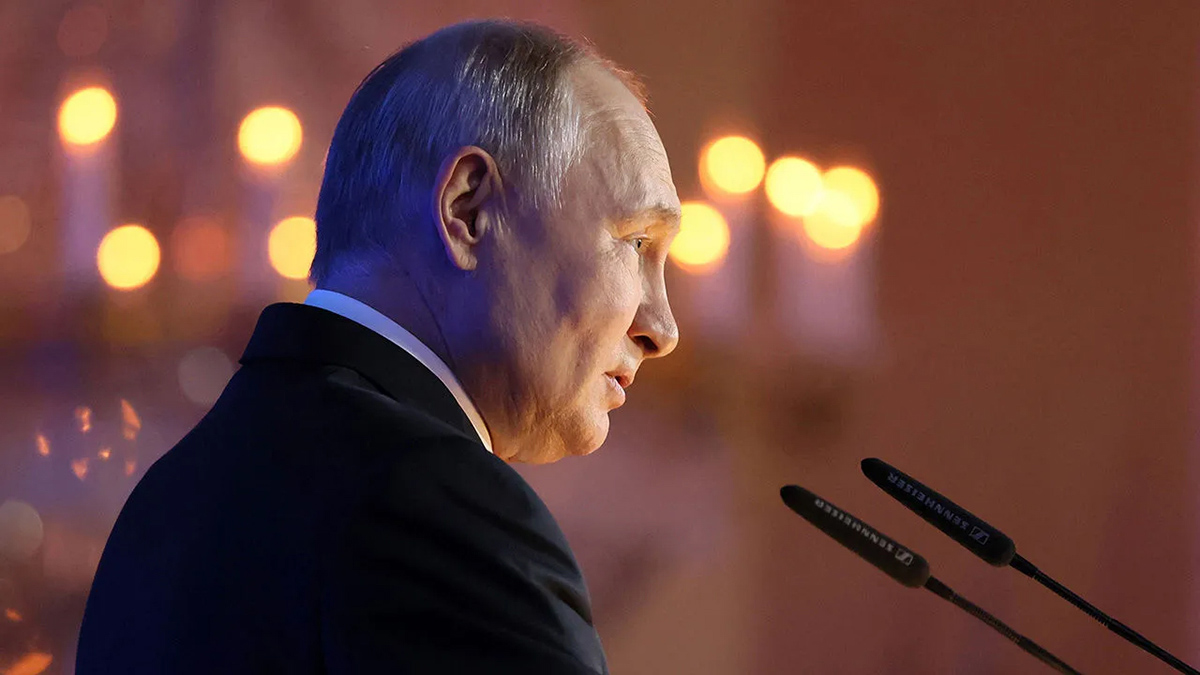

Finance
How Is Russia Funding The War?
Published: December 22, 2023
Discover how Russia is financing the ongoing war and gain insights into the financial mechanisms behind it. Uncover the hidden truths and understand the role of finance in this conflict.
(Many of the links in this article redirect to a specific reviewed product. Your purchase of these products through affiliate links helps to generate commission for LiveWell, at no extra cost. Learn more)
Table of Contents
- Introduction
- Historical Context
- Russian Government Funding
- Off-Budget Financing
- International Support and Aid
- Arms Trade and Arms Sales
- Natural Resources and Energy Trade
- International Banking and Financial Networks
- Private Contributions and Mercenary Groups
- Money Laundering and Illicit Financial Activities
- Conclusion
Introduction
The funding of wars has always been a complex and controversial topic. In the case of Russia, the financing of military operations and conflicts has evolved over time, reflecting geopolitical strategies and internal economic dynamics. Understanding how Russia funds its wars requires an exploration of various sources of funding, both overt and covert.
Throughout history, Russia has been involved in numerous conflicts, from local skirmishes to major global confrontations. The ways in which Russia has funded these wars have changed over time, adapting to political and economic circumstances. In this article, we will delve into the different methods by which Russia funds its wars and examine the key sources of financing.
It is important to note that the funding of wars is a complex and secretive process, often involving confidential and illicit activities. While we aim to provide a comprehensive overview, there may be hidden aspects that are not publicly known.
In the following sections, we will explore the historical context of Russian involvement in wars, the government’s role in funding military operations, off-budget financing mechanisms, international support and aid, arms trade, natural resources and energy trade, international banking and financial networks, private contributions, mercenary groups, as well as money laundering and illicit financial activities.
By examining these various sources of funding, we can gain a deeper understanding of how Russia sustains and supports its war efforts. It is important to analyze the economic, political, and social implications of these funding methods, as they can have wide-ranging impacts on both domestic and international arenas.
Historical Context
Russia has a long history of involvement in wars and military conflicts. From its expansionist ambitions under the tsars to its more recent interventions in Crimea and Syria, Russia’s military endeavors have shaped its history and global reputation.
The funding of wars in Russia has been influenced by historical, political, and economic factors. In the past, wars were often financed through the state treasury, with the government allocating funds from its budget to support military operations. However, as the complexity and scale of warfare increased, so did the need for additional sources of funding.
During the Soviet era, the funding of wars was largely centralized, with the state controlling the economy and allocating resources to the military. However, with the collapse of the Soviet Union in 1991, Russia underwent a significant transition in its economic and political systems.
This transition resulted in a shift in how wars were funded. The Russian government faced new challenges, including economic instability and limited budgetary resources. As a result, it had to explore alternative methods of financing its military operations.
One key aspect of the historical context is the emergence of off-budget financing. This refers to the utilization of funds that are not officially recorded in the government’s budget. Off-budget financing allows for greater flexibility and secrecy in funding wars, as it may involve sources such as hidden state assets, surplus funds from state-owned enterprises, or external contributions from allies or private entities.
The historical context also highlights the role of international support and aid in funding Russian wars. This can take various forms, including military assistance, diplomatic support, or financial contributions from other countries. Historically, Russia has relied on its alliances and partnerships to garner support and resources for its military campaigns.
Furthermore, the arms trade has been a significant source of revenue for Russia. As one of the world’s largest exporters of weapons, Russia generates substantial income from selling military equipment to other countries. The proceeds from arms sales can be used to fund its own military activities.
Understanding the historical context of war funding in Russia is crucial for comprehending the current methods utilized. By examining the evolution of funding mechanisms over time, we can gain insights into the country’s strategic and economic motivations when it comes to financing its military operations.
Russian Government Funding
The Russian government plays a central role in funding its wars and military operations. It allocates a significant portion of its budget to defense spending, which encompasses various aspects of military activities, including maintaining armed forces, purchasing weapons and equipment, and conducting operations.
The defense budget is determined by the Russian government and is subject to annual reviews and revisions. It reflects the country’s strategic priorities and military ambitions. The government assesses the security threats it faces and allocates funds accordingly to ensure the readiness and effectiveness of the armed forces.
In recent years, Russia has been increasing its defense budget, aiming to modernize its military capabilities and consolidate its position as a global power. The government’s commitment to funding the military is evident in its substantial investment in research and development, as well as the acquisition of advanced weaponry.
While the government’s budgetary allocations provide the foundation for military funding, it is important to note that not all war-related expenses are fully disclosed. Some aspects of military financing may be classified or hidden from public scrutiny, making it challenging to assess the complete extent of government funding.
Additionally, off-budget financing plays a significant role in supplementing government funds for military operations. This includes utilizing undisclosed funds, as well as contributions from state-owned enterprises or external sources. Off-budget financing enables the government to access additional resources without publicly acknowledging the full extent of its expenditure on wars.
Furthermore, the government may implement cost-saving measures to optimize military spending. This could involve streamlining operations, reducing inefficiencies, and prioritizing strategic goals to make the most efficient use of available funds.
Overall, Russian government funding is a crucial component in financing its wars. It showcases the state’s commitment to maintaining a strong military and protecting its national interests. However, the full extent of government funding, including off-budget financing, remains largely undisclosed, highlighting the secretive nature of war financing in Russia.
Off-Budget Financing
In addition to the official government funding, off-budget financing plays a significant role in supporting Russia’s wars and military operations. Off-budget financing refers to the utilization of funds that are not openly recorded in the government’s budget. This covert form of financing allows for greater flexibility and confidentiality in funding military endeavors.
Off-budget financing can take various forms, including hidden state assets, surplus funds from state-owned enterprises, or external contributions from allies or private entities. These funds are often kept off the government’s balance sheets and are not subject to public scrutiny or disclosure.
One method of off-budget financing is the use of hidden state assets. These assets can include reserves of foreign currencies, precious metals, or other valuable resources. By tapping into these hidden reserves, the government can access additional funding for military operations without revealing the full extent of its financial commitments.
State-owned enterprises also contribute to off-budget financing. Surplus funds generated by these enterprises, which are not obligated to be transferred to the government’s budget, can be allocated towards military activities. This allows the government to access additional resources without drawing directly from the official budget.
External contributions from allies or private entities also play a role in off-budget financing. These contributions can come in the form of financial aid, military equipment, or technical assistance. Often, these alliances and partnerships are conducted discreetly, with neither party publicizing the extent of their involvement.
Off-budget financing provides the government with the flexibility to allocate resources as needed without attracting too much attention or scrutiny. It allows for the financing of military operations and the acquisition of weapons and equipment outside the constraints of the official budget.
However, the use of off-budget financing also raises concerns of transparency and accountability. It is difficult to assess the complete extent of funding from off-budget sources, making it challenging for the public and international community to have a comprehensive understanding of the financial dimensions of Russia’s wars.
In summary, off-budget financing plays a significant role in supporting Russia’s wars. It offers additional resources and flexibility to fund military operations and procure equipment, while also maintaining a level of secrecy and confidentiality surrounding the government’s financial commitments.
International Support and Aid
International support and aid are crucial factors in the funding of Russia’s wars and military operations. This support can come in various forms, including military assistance, diplomatic backing, and financial contributions from other countries or international organizations.
Historically, Russia has relied on alliances and partnerships to garner support and resources for its military campaigns. During the Soviet era, countries within the Warsaw Pact, such as East Germany and Poland, provided military aid and support to Soviet forces during conflicts. Today, Russia maintains alliances and partnerships with countries like Belarus, Armenia, and Syria, which can provide military assistance and contribute to funding efforts.
International diplomatic support is another key aspect of funding Russian wars. Diplomatic backing from allies can help legitimize military actions and provide political cover for actions taken. This support may come in the form of public statements, resolutions at international organizations, or diplomatic efforts aimed at advancing Russia’s interests on the global stage.
Financial contributions from other countries or international organizations can also play a significant role in funding Russian wars. Financial aid, both bilateral and multilateral, can provide crucial resources for military operations and reconstruction efforts. This aid can come in the form of grants, loans, or debt relief. Additionally, international organizations such as the United Nations or regional bodies may provide funding for peacekeeping operations or humanitarian assistance in conflict zones.
Furthermore, non-state actors and private entities may contribute financially to Russian war efforts. These contributions can come from wealthy individuals, businesses, or even non-state armed groups. Private contributions can range from direct financial donations to the provision of goods and services that support military operations.
It is important to note that international support and aid are not independent from geopolitical interests. Countries providing support to Russia’s military operations often have their own strategic motivations and prioritize their own national interests. They may view their support as a way to advance their own influence or secure economic or political advantages.
Overall, international support and aid play a crucial role in the funding of Russian wars. Whether through military assistance, diplomatic backing, or financial contributions, these forms of support can enhance Russia’s military capabilities and provide crucial resources necessary to sustain and expand its military operations.
Arms Trade and Arms Sales
The arms trade is a significant source of revenue for Russia and plays a vital role in funding its wars and military operations. As one of the world’s largest exporters of weapons, Russia generates substantial income by selling military equipment to other countries.
Russia’s arms sales encompass a wide range of weaponry, including combat aircraft, missile systems, naval vessels, tanks, and small arms. Russian arms are known for their reliability and competitive pricing, making them attractive options for many countries looking to bolster their military capabilities.
Arms sales provide direct financial gains for Russia, as the revenue generated from these transactions can be used to support its own military activities. These funds can go towards the development and acquisition of new weapons, the maintenance of existing military assets, and the funding of ongoing military operations.
In addition to the financial benefits, the arms trade also helps Russia solidify its geopolitical influence. By selling weapons to other countries, Russia establishes military partnerships and strategic alliances, creating relationships that can be leveraged for political and economic purposes.
The arms trade is often a complex and competitive market, with various countries vying for lucrative contracts. Russia employs a range of strategies to secure arms sales, including offering favorable financial terms, providing technology transfers, and tailoring products to meet the specific needs of potential buyers.
Arms sales by Russia are not limited to state-to-state transactions. In some cases, non-state actors or mercenary groups may be the buyers. These sales may occur through illicit channels or be facilitated by private entities or intermediaries.
It is important to note that the arms trade can have both positive and negative consequences. While it provides funding for Russia’s military operations, it can also contribute to regional conflicts and unstable security environments. The proliferation of weapons can exacerbate tensions and pose significant challenges to global peace and stability.
Overall, the arms trade is a lucrative source of funding for Russia’s wars and military endeavors. It enables Russia to finance its own military activities while establishing strategic partnerships and exerting influence on the global stage. However, it is crucial for the international community to carefully monitor and regulate the arms trade to mitigate the potential negative consequences associated with the proliferation of weapons.
Natural Resources and Energy Trade
Natural resources and energy trade have played a significant role in funding Russia’s wars and military operations. As a country rich in natural resources, Russia has leveraged its vast reserves of oil, gas, minerals, and other valuable commodities to generate revenue and support its military endeavors.
The energy sector, in particular, has been a substantial source of funding for Russia. The country is one of the world’s largest producers and exporters of oil and gas, with significant reserves in locations like Siberia and the Arctic region. Revenue from oil and gas exports directly contributes to the financing of military operations and the modernization of the armed forces.
Russia’s ability to control the production and distribution of energy resources gives it significant geopolitical influence. Through strategic partnerships with energy-consuming countries, Russia can negotiate advantageous contracts and secure long-term supply agreements, ensuring a steady stream of income to fund its military activities.
In addition to energy resources, Russia also possesses significant reserves of minerals such as coal, iron ore, and precious metals. The extraction and export of these minerals contribute to the country’s overall revenue and can be used to support military funding.
Furthermore, the trade of natural resources and energy is often intertwined with political and economic interests. Russia strategically uses its control over energy resources to exert influence over neighboring countries and regions. By leveraging its energy dominance, Russia can shape political dynamics and secure economic advantages that indirectly support its military ventures.
However, the reliance on natural resources and energy trade as a source of funding also poses challenges for Russia. Fluctuations in commodity prices, geopolitical tensions, and changes in global energy markets can impact the stability of Russia’s revenue streams. This volatility highlights the importance of diversifying the economy and reducing dependence on a single sector for funding wars.
In summary, natural resources and energy trade have been crucial in funding Russia’s wars and military operations. The country’s immense reserves of oil, gas, minerals, and strategic control over energy resources provide significant financial resources that are channeled towards defense expenditures. However, the reliance on these resources also exposes Russia to economic and geopolitical risks that need to be carefully managed.
International Banking and Financial Networks
International banking and financial networks play a crucial role in the funding of Russia’s wars and military operations. Through these networks, Russia can access capital, facilitate transactions, and navigate complex financial systems to support its military endeavors.
Russia’s banking sector, both domestic and international, serves as a critical conduit for funding military operations. Russian banks provide services such as loans, investment opportunities, and financial instruments that can be used to raise funds for defense expenditures. Additionally, international banks with operations in Russia can facilitate financial transactions and provide access to global markets.
Furthermore, Russia utilizes complex financial networks to move funds discreetly and efficiently. These networks often involve offshore entities, shell companies, and complex ownership structures that can obscure the true origin and destination of funds. This level of secrecy allows Russia to navigate international financial regulations and may facilitate illicit activities to finance its wars.
One method of utilizing international banking and financial networks is through the issuance of government bonds. Russia can issue bonds in international markets, attracting investors looking for high yields and diversification. The proceeds from these bond sales can be used to fund military operations and cover other defense-related expenses.
In addition to traditional banking channels, Russia may also access alternative financial networks to support its military efforts. These networks can include informal money transfer systems, crypto-currencies, or even bartering arrangements. These alternative methods provide additional flexibility and may help circumvent international sanctions or regulatory constraints.
It is important to note that the use of international banking and financial networks for war funding also poses challenges to international security and financial stability. Illicit financial activities, money laundering, and the movement of funds through opaque channels can undermine the integrity of the global financial system. Efforts to combat these illicit activities, such as international sanctions, aim to minimize the abuse of international banking systems for illicit purposes.
In summary, international banking and financial networks are critical in funding Russia’s wars and military operations. The banking sector provides necessary financial services and access to global markets, while complex networks support the movement of funds discreetly. However, the use of these networks also presents challenges to international security and financial stability, emphasizing the importance of robust regulatory frameworks to combat illicit financial activities.
Private Contributions and Mercenary Groups
Private contributions and the involvement of mercenary groups play a significant role in funding Russia’s wars and military operations. These non-state actors contribute both financially and militarily, providing additional resources and manpower to support Russia’s military endeavors.
Private contributions can come from wealthy individuals, corporations, or organizations with aligned interests. These contributions can take various forms, including direct financial donations, in-kind contributions, or the provision of specialized services and expertise. Private contributors may have a vested interest in supporting military operations that align with their political or economic objectives.
Private sector support can also extend to the defense industry. Private defense contractors and companies may provide weapons, equipment, and logistical support to Russian military operations. Through commercial contracts, these private entities contribute to the funding of wars while furthering their own business interests.
Mercenary groups are another important component in funding Russian wars. These groups are composed of professional fighters who are contracted to provide military services on behalf of a client, in this case, Russia. Mercenaries are typically well-trained and experienced soldiers who can supplement the regular armed forces or carry out specialized tasks.
Russian mercenaries can be deployed to conflict zones where the direct involvement of regular military forces may not be politically feasible or publicly acceptable. The use of mercenaries allows for increased flexibility and deniability in military operations.
Although mercenary activities can be controversial, they provide Russia with a cost-effective means of supporting military objectives. Instead of bearing the full financial burden of maintaining a large standing army, Russia can contract mercenaries who receive compensation directly from private sources or through indirect arrangements.
However, private contributions and the involvement of mercenary groups also raise concerns related to accountability and compliance with international laws and regulations. The activities of private actors, particularly in conflict zones, can further complicate an already complex landscape and impact the prospects for peace and stability.
It is important for governments and international organizations to closely monitor and regulate the involvement of private contributors and mercenary groups to ensure compliance with international humanitarian laws and to prevent human rights abuses or violations of international norms.
In summary, private contributions and the use of mercenary groups play a significant role in funding Russia’s wars and military operations. These non-state actors provide additional resources, expertise, and manpower, contributing to the advancement of Russian military objectives. However, the involvement of private entities and mercenaries also raises concerns that must be carefully addressed to uphold international standards and promote a stable global security environment.
Money Laundering and Illicit Financial Activities
Money laundering and illicit financial activities are covert methods used to fund Russia’s wars and military operations. These illegal practices involve disguising the origin and flow of funds, making it challenging to track the true source of financing for military endeavors.
Russia has been associated with various money laundering schemes, which allow illicit funds to enter the formal financial system and be used to fund war efforts. Money laundering methods often involve complex networks of shell companies, offshore accounts, and transactions designed to obscure the true ownership and purpose of the funds.
One common money laundering technique is the transfer of funds through a series of legitimate and illegitimate transactions, making it difficult to trace the origin and destination of the money. Offshore financial centers, with their lax regulations and secrecy provisions, can serve as conduits for these transactions, enabling the movement of illicit funds across borders.
Illicit financial activities, such as corruption and fraud, also contribute to the funding of Russian wars. Corrupt practices, particularly within the defense sector, divert funds meant for legitimate purposes to finance personal enrichment or covert military operations. Fraudulent activities, including embezzlement and bribery, further drain resources that could be allocated to non-military sectors or legitimate defense expenditures.
The involvement of organized crime groups is another aspect of illicit financial activities in the funding of Russian wars. These criminal networks engage in various illegal activities, such as drug trafficking, arms smuggling, and human trafficking, to generate profits that can be funneled into military operations.
International efforts to combat money laundering and illicit financial activities, including the implementation of stricter regulations and enhanced cooperation between law enforcement agencies, aim to dismantle these networks and disrupt the flow of illicit funds. However, these efforts face challenges, given the secretive nature of these activities and the constant evolution of methods employed by criminals.
Money laundering and illicit financial activities have far-reaching consequences beyond the funding of wars. They undermine the integrity of the global financial system, erode trust in institutions, and facilitate the perpetuation of criminal enterprises. Efforts to combat these practices are essential for the promotion of transparency, accountability, and the prevention of illegal activities that prolong conflicts.
In summary, money laundering and illicit financial activities are covert methods employed to fund Russia’s wars and military operations. These illegal practices make it difficult to trace the true source of financing, with funds being disguised through complex networks and illicit transactions. International efforts to combat money laundering and illicit financial activities are essential in mitigating the harm caused by these practices and ensuring the integrity of the global financial system.
Conclusion
The funding of wars in Russia is a complex and multifaceted process, influenced by historical, political, and economic factors. Understanding how Russia funds its wars requires an examination of various sources of financing, ranging from government allocations and off-budget mechanisms to international support, arms trade, natural resources, private contributions, and illicit financial activities.
The Russian government plays a central role in funding its wars, allocating a significant portion of its budget to defense spending. However, off-budget financing allows for greater flexibility and confidentiality, employing hidden state assets, surplus funds from state-owned enterprises, or external contributions to supplement official funding. This covert financing provides the government with additional resources without public disclosure.
International support and aid also play a crucial role in funding Russian wars. Diplomatic backing, military assistance, and financial contributions from other countries and international organizations support the country’s military operations and strategic objectives.
The arms trade is a significant source of revenue for Russia, as it exports a wide range of weapons to other countries. Arms sales generate funds that can be used to finance its own military operations while establishing strategic partnerships and exerting geopolitical influence.
Furthermore, natural resources and energy trade contribute to the funding of Russian wars. The country’s vast reserves of oil, gas, minerals, and strategic control over energy resources provide a significant financial foundation for military activities.
Private contributions from individuals, corporations, and organizations, as well as the involvement of mercenary groups, offer additional resources and expertise to support Russian military endeavors. However, careful regulation and oversight are essential to ensure compliance with international laws and prevent abuse or destabilization.
Money laundering and illicit financial activities pose challenges to transparency and accountability in war financing. These covert practices, facilitated by complex networks and offshore transactions, obscure the origin and flow of funds, making it difficult to track illicit financing sources.
In conclusion, the funding of Russian wars is a complex combination of government allocations, off-budget mechanisms, international support, arms trade, natural resources, private contributions, and illicit financial activities. Understanding the dynamics of war financing is crucial for analyzing Russia’s military capabilities, geopolitical influence, and the impact on global security. Efforts to promote transparency, hold accountable those engaged in illicit financing practices, and regulate the arms trade are essential for maintaining stability and peace in the international community.

